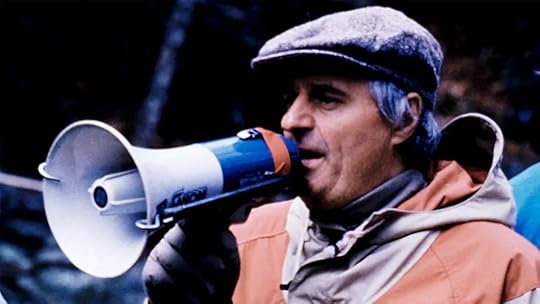Hooray For Hollywood–and Ted Kotcheff

Ted Kotcheff, the Toronto-born filmmaker whose eclectic movie career ranged from the iconic The Apprenticeship of Duddy Kravitz to the commercial phenomenon of First Blood, provided me with a tough lesson in Hollywood realities.
I was reminded of that lesson again last week when the news came of Ted’s death at the age of ninety-four.
Ted had one of those open intelligent faces that invite you to come in, but with Ted, I was to learn, it was unwise to forget that underneath it all was a hard-nosed Hollywood survivor who did what it took to get a movie made—or to make an unwary writer aware of a hard truth or two.
My first real encounter with Ted occurred when I drove down to my hometown of Brockville where he was shooting Joshua Then and Now from the novel by Mordecai Richler. It was a sort of follow-up to Duddy Kravitz, the film that had put writer and director on the map. Ted and Richler had been friends since they were young men down and out in London.
It quickly became apparent when I got to the set and everyone broke for lunch, that Richler’s reputation as a bit of an ass would be on full, rude, arrogant display. Ted, on the other hand, was the soul of friendly diplomacy. I liked Ted. I could have strangled Richler.
Years later I was living in Los Angeles and doing what everyone in Los Angeles seemed to be doing—writing screenplays. Something I had written, a film noirish thriller called First Degree, was making the rounds without much success.
Word came that Ted Kotcheff had read the script and liked it. Ted Kotcheff read a script of mine that he liked? In a town where, I had discovered, it was difficult to get anyone to read anything, let alone like it, this was terrific news.
I phoned Ted and he readily agreed to meet me for lunch. That was a good omen, I thought. Friendly, welcoming Ted who also liked my script. I could hardly wait. Hooray for Hollywood!
We met at Le Dome a French eatery on Sunset Boulevard, at the time tres-chic (Elton John was one of the founders). Ted was a regular. He seemed to know everyone and everyone seemed to know him. After all, he was a big-time Hollywood director. Did I mention that he liked my script?
We sat, ordered lunch and then for the next two hours we talked about everything under the sun—everything except my screenplay. I began to get nervous. Why weren’t we talking about my script, the script Ted Kotcheff liked?
Finally, I cleared my throat, gathered my diminishing courage and said, “I understand you’ve had a chance to read my script.”
“Yes, I have,” Ted allowed. Nothing more than that.
I took another deep breath and asked the question you should never ask in Hollywood: “What did you think?”
“I didn’t like it,” Ted answered matter-of-factly, as though it was a given he wouldn’t like it.
I blinked a couple of times and then said: “Oh.”
“It has all the things I don’t like in a script,” he went on. “Everything seemed artificial and contrived. I like scripts that are grounded in some sort of reality.”
Intuitive soul that I am, I gathered from Ted’s reaction that he was not about to direct First Degree. For the life of me, I couldn’t understand why he even agreed to have lunch, but hey, welcome to Hollywood. I spent a great deal of time out there debating whether I was the worst screenwriter who ever came to town or merely a serviceable hack. That afternoon I staggered out of Le Dome convinced I was the worst.
However, that should never stop anyone in Hollywood and it didn’t stop me. Not long after, something happened to First Degree that almost never happens—it actually got made into a movie starring Rob Lowe presented as a premiere on HBO.
Hooray for Hollywood—and Ted Kotcheff!
 Mordecai Richler with Ted Kotcheff
Mordecai Richler with Ted Kotcheff



